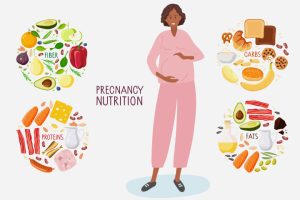The Co-ordinating Minister of Health and Social Welfare, Prof. Mohammad Ali Pate, has announced Federal Government’s commitment to promoting a life-saving initiative intended to improve quality maternal health outcomes.
The minister, who announced this in Abuja, said that based on the 2020 WHO recommendations on antenatal care for a positive pregnancy experience, the Federal Government has adopted the use of Multiple Micronutrient Supplement [MMS] during pregnancy to improve maternal health.
According to Pate, who was represented by the Permanent Secretary of the Ministry, Daju Kachallom, the inclusion of MMS for pregnant women in the “National Guidelines for the
Prevention and Control of Micronutrient Deficiencies Control in Nigeria” is geared towards improving pregnancy outcomes compared to Iron Folic Acid supplementation.
The minister explained the urgency in scaling up programmes that deliver MMS to vulnerable mothers, maintaining that the process requires efficient supply chain systems and building awareness of its health benefits among mothers, communities, and maternal healthcare provider.
pregnancy increases the daily requirement of several vitamins and minerals to meet the nutritional needs of the developing foetus and other metabolic functions
“This is why the third pillar of the Health Sector Renewal Investment Programme is focused on unlocking medical value chains, with target to reduce the 41% stock-out rate of family
planning products, among others; while the second pillar aims at achieving an efficient, equitable and quality health system and targeting strengthening programs for priority diseases (MTCT, immunization, malaria and MMR).
 “Beyond making MMS available and accessible, we also need to make the information about its efficacy available to the public, especially to pre– and ante-natal women. It is well known that pregnancy increases the daily requirement of several vitamins and minerals to meet the nutritional needs of the developing foetus and other metabolic functions.
“Beyond making MMS available and accessible, we also need to make the information about its efficacy available to the public, especially to pre– and ante-natal women. It is well known that pregnancy increases the daily requirement of several vitamins and minerals to meet the nutritional needs of the developing foetus and other metabolic functions.
“Antenatal MMS is designed to address these heightened demands, which are often not met through diet alone. It is particularly useful for pregnant women in poor resource settings where micronutrient intake is typically low due to inadequate dietary diversity limited access to nutritious food, gender inequality, and prevalent social norms.”
MMS is not a vaccine, and is delivered in the form of a tablet, capsule, powder, or liquid that provides a combination of vitamins and minerals in the right amounts.
MMS is not a vaccine, and is delivered in the form of a tablet, capsule, powder, or liquid that provides a combination of vitamins and minerals in the right amounts
The Permanent Secretary, Federal Ministry of Health, Daju Kachollom mni who was represented by Mrs. Bako Ayegbusi, Director (Nutrition), noted the critical role of micronutrient in foetal development, neonatal and maternal outcomes, and the elevated prevalence of micronutrient deficiency around the world in women of reproductive age, adding that WHO’s guidelines recommends that policy makers in populations with a high prevalence of nutritional deficiencies consider providing MMS that include IFA to pregnant women during antenatal care to improve maternal health outcome.


